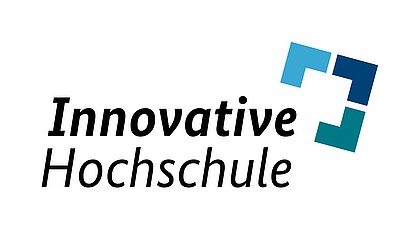Research "at your fingertips" was and is once again available at this year's Citizens Meet Science event.

In January 2019, short interview sequences were shown at the New Year's reception of the IHK, HWK and HSZG, in which some citizens of Zittau were allowed to make a short statement about the university. In addition to very well-informed people, some openly admitted that they couldn't think of much to say about the university.
The cooperation between the HSZG and the local adult education center Dreiländereck (VHS) in the Saxony5 project came at just the right time! It should be possible to find new potentially interested sections of the population and get them interested in the university's many fantastic research projects.
Together with Matthias Weber and Rene Seidel from the VHS, the idea was conceived of inviting citizens to the university as part of a free course , which was funded by the project. In an almost private setting limited to ten participants - with something small to eat and drink in hand for the discussions afterwards - the researchers should be able to talk in a very approachable way about what they do on a daily basis and how science actually works. In this way, even far away from the commentary columns in social media, the results of research can be discussed openly and a step can be taken towards greater mutual understanding. Ultimately, this should also increase everyone's willingness to participate in science.
We showed our guests the Zittau power plant laboratory and the LaNDER³ hall in two mornings and two evenings. The opportunity to find out about the university's research in a very uncomplicated way was very well received by the sometimes very mixed audience from all walks of life (former graduates, former power plant employees, interested metalworkers, teachers, technicians, pensioners, children....). We will therefore be offering the event again this year.
The next dates for Citizens meets Science are
The express aim of the events is to welcome interested citizens to the university who would otherwise not dare to visit the HSZG. So if you work at the university or are a frequent guest here, please feel free to recommend these events to relatives or acquaintances who are not yet so familiar with the university and its research.
We would like to take this opportunity to especially thank the scientists who took part in the format and presented their research within reach.
Text: Martin Kunack, Kristin Sprechert
